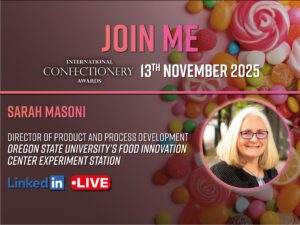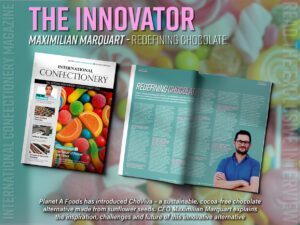Bitzel’s Chocolate, a renowned chocolatier in Suwanee, has captivated the palates of chocolate lovers with its delectable range of high-end treats, produced daily through a state-of-the-art automated process. However, many enthusiasts may not realise the company’s commitment to authentic ingredients and environmental sustainability.
“Everyone’s more aware of what they’re eating these days,” says owner and chocolatier Ray Bitzel. “They want to know where their food comes from and what’s in it, and that their enjoyment doesn’t come at the expense of the planet.”
This philosophy is integral to the creation of Bitzel’s mouthwatering array of products, including chocolate bars, double-dipped truffles, bonbons, caramels, and chocolate-covered fruits.
“We’ve made a huge point of sustainability for several reasons, not the least of which is that we just think it’s a good thing to do,” Bitzel explains. “Another is that it’s just smart business. The chocolate industry is going through a lot of turmoil right now, and one reason for that is that the price of chocolate is at a 45-year high. We’re working with farmers on ways we can help them be more sustainable and more efficient.”
Sustainability begins at Bitzel’s farms, particularly Costa Esmeraldas, where Freddy Salazar and his family have transformed over 100 hectares of clear-cut forest into a thriving cacao and agroforest. This effort boosts the local economy with two annual harvests, reducing the need for further logging. Bitzel’s supports these initiatives by paying more than three times the average price, ensuring they receive top-quality beans. This not only benefits the environment but also strengthens the community.
Bitzel’s dedication to sustainability extends to its equipment. “When our gelato machines came to the U.S., they required water-cooling, which would take 10 gallons an hour for each machine,” Bitzel recounts. “Multiply that by two machines, 24 hours a day, 365 days a year, and that’s about 175,000 gallons we’d be wasting per year just to cool the machines. We worked with the manufacturer to modify the machines and saved thousands of gallons of water. It’s a closed-loop system, which is more expensive up-front, but we don’t have all that water going down the drain.”
Additionally, Bitzel’s ensures its machines are 1E4-rated “for super-premium efficiency,” Bitzel adds. “That’s the highest grade you can get on chocolate equipment. As a result, our electric bill is much lower every month, a third or even half of what a factory of comparable size might pay.”
Bitzel’s sustainability efforts also encompass its packaging. Designed for reuse, the packaging is so attractive that customers often repurpose it rather than discard it. All packaging is 100% recyclable and free from heavy metal inks. Bitzel’s has also minimised the size and weight of single-use packaging. For example, their hollow chocolate packaging averages about 30 grams, compared to over 200 grams for similar products. Gelato packaging uses zero plastics, opting for 100% recyclable paper cups and lids with at least 30% post-consumer paper.
“The spoons we use for our gelato are made out of compressed cornstarch instead of plastic, so they’re going to break apart easily in a landfill,” Bitzel says. “We also use magnetic closures for our packages instead of glue, which isn’t environmentally friendly.”
Bitzel’s commitment to quality and sustainability extends to its ingredients. “We use peaches, strawberries—real fruit, real nuts,” Bitzel notes. “We don’t use chemicals or emulsifiers in our cocoa butter, and we source locally whenever possible, like our Georgia peach truffles or Georgia blueberries. Even our pecans are butter-roasted on a small farm in South Georgia.”
Visitors to Bitzel’s factory in Suwanee can observe the production process in real-time, from cacao harvest to packaging. They can also learn about cacao growers and harvesters from Ecuador, Uganda, and the Dominican Republic while walking through an artificial cacao forest.
“We’re proud that guests can see how our quality products are made every step of the way, from bean to bar,” Bitzel says. “It’s not enough anymore to deliver a so-so product that looks like everything else out there. Our customers and corporate clients want affordable, high-end options, and they want to know that they’re not sacrificing the planet to get those things. We have all of that, plus the most delicious, authentic chocolate you’re ever going to taste.”
Stay up-to-date on the latest industry news and exclusives in our magazine.
Never miss a story… Follow us on:
![]() International Confectionery
International Confectionery
![]() @InConfectionery
@InConfectionery
![]() @InConfectionery
@InConfectionery
Media contact
Hannah Larvin
Editor, International Confectionery
Tel: +44 (0) 1622 823 920
Email: [email protected]









